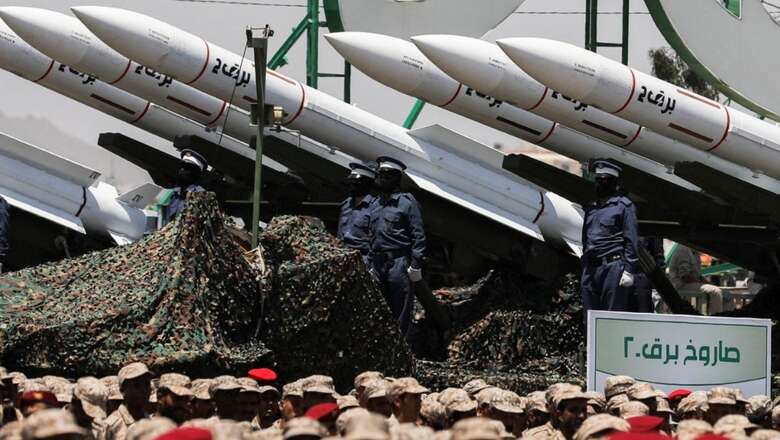
views
An American fighter jet shot down an anti-ship cruise missile fired by Yemen’s Houthi rebels toward an American destroyer in the Red Sea on Sunday. This was the first time following the joint US-UK airstrikes that the Houthis have launched a fresh attack as the Israel-Hamas conflict marked its 100th day.
The fresh attacks signal that the US-UK airstrikes which aimed to destroy Houthi weapons arsenal supplied by Iran could not destroy all the weapons. An American intelligence official told UK-based news outlet The Sun that around three quarters of the terror army’s hardware remained intact. The official explained that around 30% of Houthi weaponry survived the airstrikes.
The intelligence officials said that the joint airstrikes failed to destroy the entire Houthi weapons cache despite precision-guided strikes in Yemen on more than 60 targets. The UK’s Royal Air Force’s Typhoon war jets and American Lightning stealth bombers and cruise missiles earlier hit 90% of the weapons cache across 30 locations, it was claimed earlier.
The report by the newspaper pointed out that Iran supplied Houthis with more weapons and launch platforms that are mobile in nature and those remain hidden from satellites and spy planes.
The officials told the newspaper that even after striking more than 60 missile and drone targets with more than 150 precision-guided munitions, only 20-30% of the Houthi weaponry were destroyed.
The detailed assessment shows that despite such strikes the task to secure the important Red Sea shipping route will be a tough task. Citing experts, the UK-based newspaper said more air strikes are expected once munitions depots and storage facilities are located.
The assessment revealed that the first wave of US-led strikes struck 60 targets in 16 locations with more than 100 precision-guided bombs and missiles. A second round of strikes were carried out targeting 12 locations which posed threats to aircraft and ships 30-60 minutes later.
The US then carried out “mopping up” attacks on Friday and Saturday. Experts predicted that the coalition would need new tactics like striking “pop-up targets” at short notice if and when Houthis attempt to move or deploy their weaponry.



















Comments
0 comment